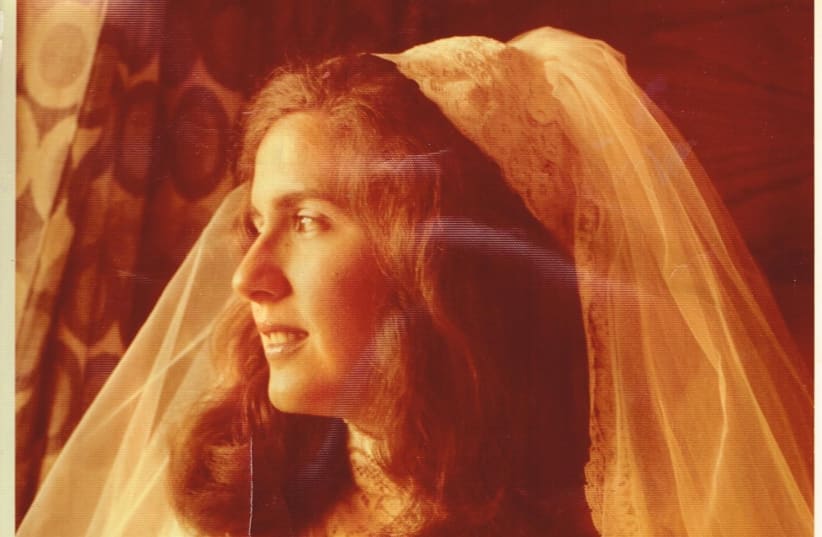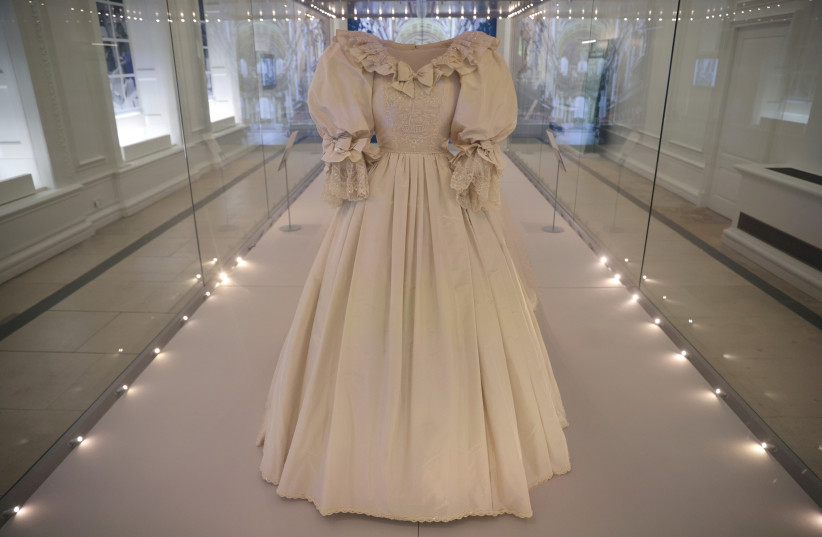Many Facebook posts fly by me, but this one, about brides, ignited a memory for me, of two good deeds that juxtaposed around the topic of wedding gowns.
At the age of almost 18, I came to Israel to study in a gap-year program. But the “gap” stretched, and I stayed. I went on to attend college in Israel, began working, and began dating.
When I was about 23-years-old, I went back to Cleveland for the summer, as I did every year. Sadly, my mother’s best friend, Rae Epstein, had died of cancer. She and her husband, Ben, were such close friends of my parents that we grew up calling them Aunt and Uncle.
Rae and Ben had owned a bridal shop, and after Rae’s death, Ben decided to sell the shop and move to Florida.
He knew I was home for the summer, so he called my mother and said to her, “Rae and I always planned on giving Toby a wedding gown as our gift. Since I’m closing the store, please come down here with her and have her choose one.”
I didn’t want to, as I wasn’t even seeing anyone seriously, but he insisted.
So I went, tried on some gowns, fell in love with one, and said, “Thanks,” but I wouldn’t take it, as I was afraid of ayin hara (the evil eye).
Uncle Ben closed the shop and I returned to Israel.
But before he closed it, and sold off his inventory, my mother, of blessed memory, had a request. She asked him to donate bridal gowns to an orphanage in Israel. He gave her 25.
I heard later that it was quite an ordeal arranging, shipping, and getting them through customs, but my mother did it.
One summer, a few months before my 26th birthday, I called my mom and told her that even though I had planned on being on a plane in a few days, I decided to delay my trip to Cleveland by a few weeks. When she asked why, I kind of hemmed and hawed and finally said that I was dating someone and just wanted to come back to Cleveland a bit later.
I had told my mother before about some of the guys I had met and was going out with, and I was careful to not make a big deal out of this one, as I didn’t want her to get excited, only to have her hopes dashed in the end.
And then she said to me, “I have the feeling that I can tell you something now. When Uncle Ben closed the store, after you had returned to Israel, he brought over a gown and said to me, ‘I know Toby loved this one. Please put it away for her. She was afraid of ayin hara, so you don’t have to tell her you have it; just save it for her.’”
My mom’s intuition was right, and on Rosh Hodesh Nissan (April 1), within a year, Yaakov and I married. I wore the exquisite gown that was a gift from my parents’ beloved friends. And 25 orphan brides had beautiful gowns on their wedding days.
I remember, while growing up, seeing envelopes from Bayit Lepletot that came in the mail, soliciting charity. That was probably the girls’ orphanage to which my mother sent the wedding gowns.
I blessed Henny on her birthday, and donated to her brides’ fund. A spiral of chesed.
Ben Azzai in Ethics of the Fathers said: “One mitzva leads to another.”
And so it was. ■
The author is an award-winning journalist, theater director, and editor-in-chief of WholeFamily.com.

